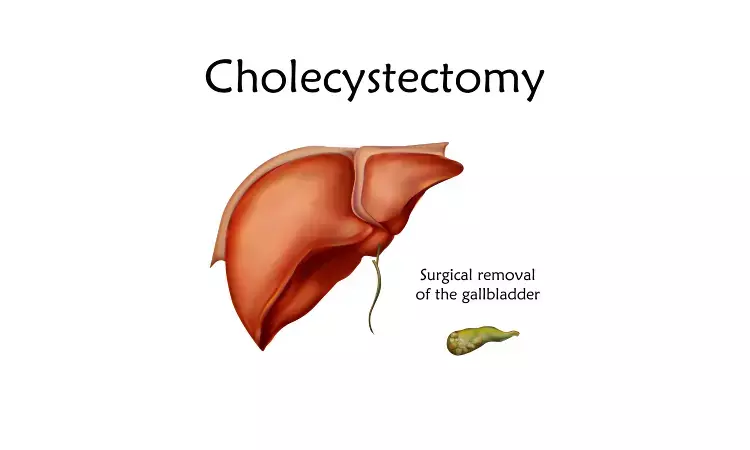- Home
- Medical news & Guidelines
- Anesthesiology
- Cardiology and CTVS
- Critical Care
- Dentistry
- Dermatology
- Diabetes and Endocrinology
- ENT
- Gastroenterology
- Medicine
- Nephrology
- Neurology
- Obstretics-Gynaecology
- Oncology
- Ophthalmology
- Orthopaedics
- Pediatrics-Neonatology
- Psychiatry
- Pulmonology
- Radiology
- Surgery
- Urology
- Laboratory Medicine
- Diet
- Nursing
- Paramedical
- Physiotherapy
- Health news
- Fact Check
- Bone Health Fact Check
- Brain Health Fact Check
- Cancer Related Fact Check
- Child Care Fact Check
- Dental and oral health fact check
- Diabetes and metabolic health fact check
- Diet and Nutrition Fact Check
- Eye and ENT Care Fact Check
- Fitness fact check
- Gut health fact check
- Heart health fact check
- Kidney health fact check
- Medical education fact check
- Men's health fact check
- Respiratory fact check
- Skin and hair care fact check
- Vaccine and Immunization fact check
- Women's health fact check
- AYUSH
- State News
- Andaman and Nicobar Islands
- Andhra Pradesh
- Arunachal Pradesh
- Assam
- Bihar
- Chandigarh
- Chattisgarh
- Dadra and Nagar Haveli
- Daman and Diu
- Delhi
- Goa
- Gujarat
- Haryana
- Himachal Pradesh
- Jammu & Kashmir
- Jharkhand
- Karnataka
- Kerala
- Ladakh
- Lakshadweep
- Madhya Pradesh
- Maharashtra
- Manipur
- Meghalaya
- Mizoram
- Nagaland
- Odisha
- Puducherry
- Punjab
- Rajasthan
- Sikkim
- Tamil Nadu
- Telangana
- Tripura
- Uttar Pradesh
- Uttrakhand
- West Bengal
- Medical Education
- Industry
Novel model may decide which patient with gallstone disease will benefit from cholecystectomy: JAMA

Netherlands: Cholecystectomy is a common surgery, and it carries only a small risk of complications. Currently, no consensus on the indication for cholecystectomy in patients with uncomplicated gallstone disease has been reported. A multicenter trial by Dr. Carmen S. S. Latenstein, MD, and the team revealed that a multivariable prediction model may help predict the probability of pain reduction following cholecystectomy. This may help surgeons in making decisions on whether patients with uncomplicated cholelithiasis will benefit from cholecystectomy.
The objective of the study was to report on the development and validation of a multivariable prediction model to better select patients for surgery. The findings of the study are published in JAMA Surgery.
The study evaluated data from 2 multicenter prospective trials (the previously published Scrutinizing (In)efficient Use of Cholecystectomy: A Randomized Trial Concerning Variation in Practice [SECURE] and the Standardized Work-up for Symptomatic Cholecystolithiasis [Success] trial) collected from the outpatient clinics of 25 Dutch hospitals between April 2014 and June 2019 and including 1561 patients with symptomatic uncomplicated cholelithiasis, defined as gallstone disease without signs of complicated cholelithiasis. Data were analyzed from January 2020 to June 2020. Patient characteristics, comorbidity, surgical outcomes, pain, and symptoms were measured at baseline and at 6 months follow-up. A multivariable regression model to predict a pain-free state or a clinically relevant reduction in pain after surgery. Model performance was evaluated using calibration and discrimination.
A total of 1561 patients were included (494 patients in 7 hospitals in the development cohort and 1067 patients in 24 hospitals in the validation cohort; 6 hospitals included patients in both cohorts).
The results of the study were
• In the development cohort, 395 patients (80.0%) underwent cholecystectomy. After surgery, 225 patients (57.0%) reported that they were pain-free and 295 (74.7%) reported a clinically relevant reduction in pain.
• A multivariable prediction model showed that increased age, no history of abdominal surgery, increased visual analog scale pain score at baseline, pain radiation to the back, pain reduction with simple analgesics, nausea, and no heartburn were independent predictors of clinically relevant pain reduction after cholecystectomy.
• Both internal validation and external validation showed good discrimination were (C statistic, 0.80) (C statistic, 0.74) respectively between patients with and without clinically relevant pain reduction.
Dr Latenstein, MD, and team conveyed that model validated in this study might help predict the probability of pain reduction after cholecystectomy and thus aid surgeons in deciding whether patients with uncomplicated cholelithiasis will benefit from cholecystectomy.
Reference:
Latenstein CSS, Hannink G, van der Bilt JDW, et al. A Clinical Decision Tool for Selection of Patients With Symptomatic Cholelithiasis for Cholecystectomy Based on Reduction of Pain and a Pain-Free State Following Surgery. JAMA Surg. 2021;156(10):e213706. doi:10.1001/jamasurg.2021.3706
Medical Dialogues consists of a team of passionate medical/scientific writers, led by doctors and healthcare researchers. Our team efforts to bring you updated and timely news about the important happenings of the medical and healthcare sector. Our editorial team can be reached at editorial@medicaldialogues.in.
Dr Kamal Kant Kohli-MBBS, DTCD- a chest specialist with more than 30 years of practice and a flair for writing clinical articles, Dr Kamal Kant Kohli joined Medical Dialogues as a Chief Editor of Medical News. Besides writing articles, as an editor, he proofreads and verifies all the medical content published on Medical Dialogues including those coming from journals, studies,medical conferences,guidelines etc. Email: drkohli@medicaldialogues.in. Contact no. 011-43720751


